Lock Blog
A resource for consumers, locksmiths, and security professionals
A resource for consumers, locksmiths, and security professionals
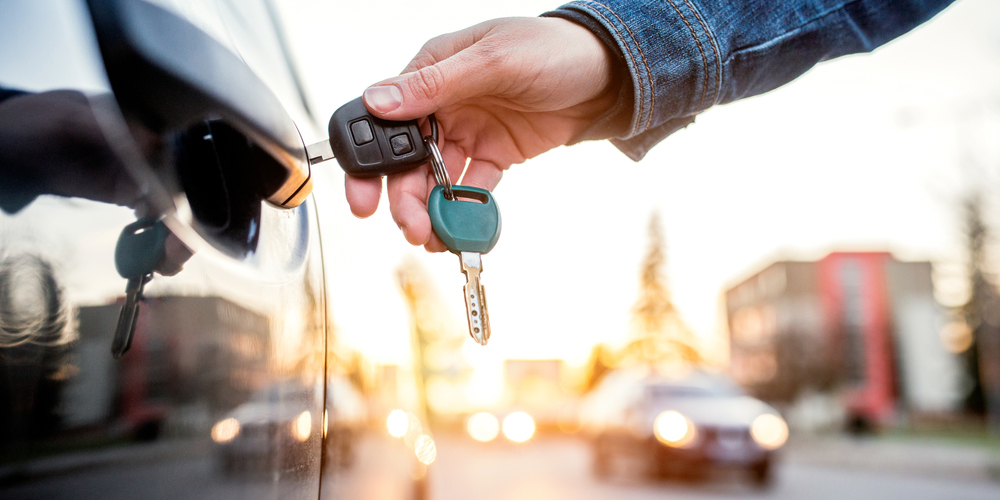
We have all had one of those days. You’re rushing to go somewhere, and as you try to start your car, or even unlock it, you realize that your car key is not working. In that moment, when you might be locked out of your car, your mind is racing to try and understand all the reasons why this might be. Sometimes, the answer will easily come to you, while other times it might take a while for you to figure out what the root of the problem is. We’ve all been there, so it is a familiar pain that we share. To make this ordeal much easier for you, should you need it now or in the future, I will take a look at some of the reasons why your car key is not working.
Find your Car Key Problem:
To diagnose the root of your problem, first you have to know the type of car key you have and how it works with your vehicle. There is a common misconception that all car keys are the same, after all, they are all used to operate cars, so they must be the same, right? Unfortunately not. Although car keys and car door locks might be similar in many ways, they are all very unique, which is why bump keys don’t work on cars. This is the reason why it is important to understand the type of car key you have so you can properly diagnose the reason why your car key is not working.
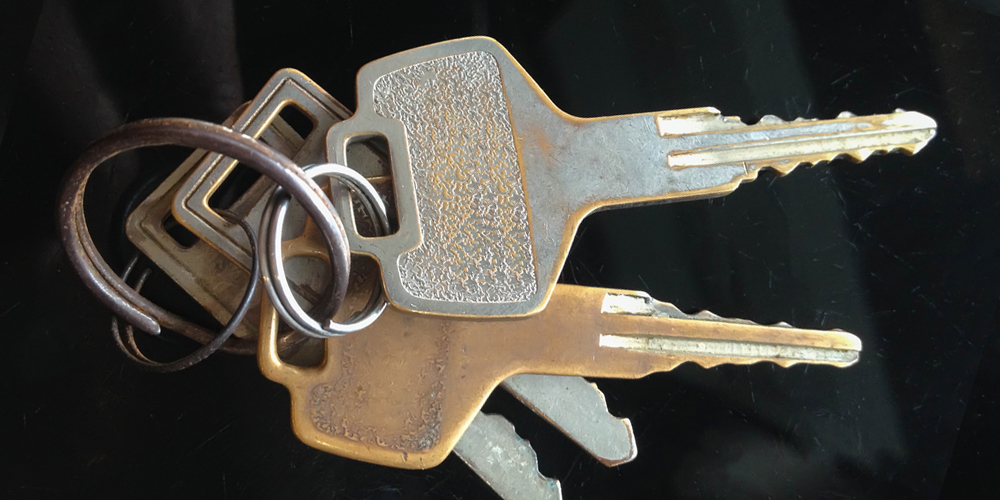
The most common type of car key used to be the traditional car key, which was mostly just a physical key that was used to engage your car door locks and work in conjunction with your ignition. Chances are if you own a vehicle that was manufactured before 1995, then your car keys are the more traditional kind.
Traditional car keys are very similar to the locks on your house. They are a single length of metal, with a series of cuts that fit a specific lock. If you were to cut a key to match the physical appearance of your key, it will start your car and open all the locks. Unless the key breaks, the grooves wear down or the lock cylinders malfunction, you won’t have an issue.
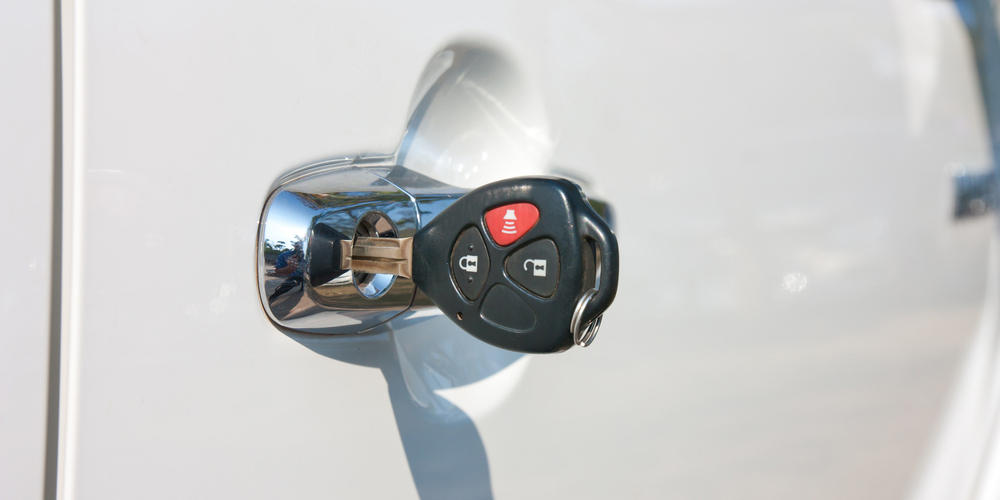
After 1995, most car manufacturers began pairing vehicles with transponder keys. A transponder key essentially means that your car is now paired with your key in a much more secure way. There is a transmitter embedded within the key that corresponds to a receiver housed within the vehicle. In order for the car to work in the ignition, the transmitter and the receiver have to exchange a series of signals that serve as verification that the right key is in place.
Often the transponder chip is housed in a bit of plastic, covering the bow/thumbturn of your key. If the blade of your car key protrudes out of an attached remote, the transponder chip is likely in the remote. This chip can be damaged, or the receiver for its signal can stop working. If anything is interfering with the signal between the transponder key and the car immobilizer unit, your car will not start. With two communicating parts, it is important to check both when the car key is not working.
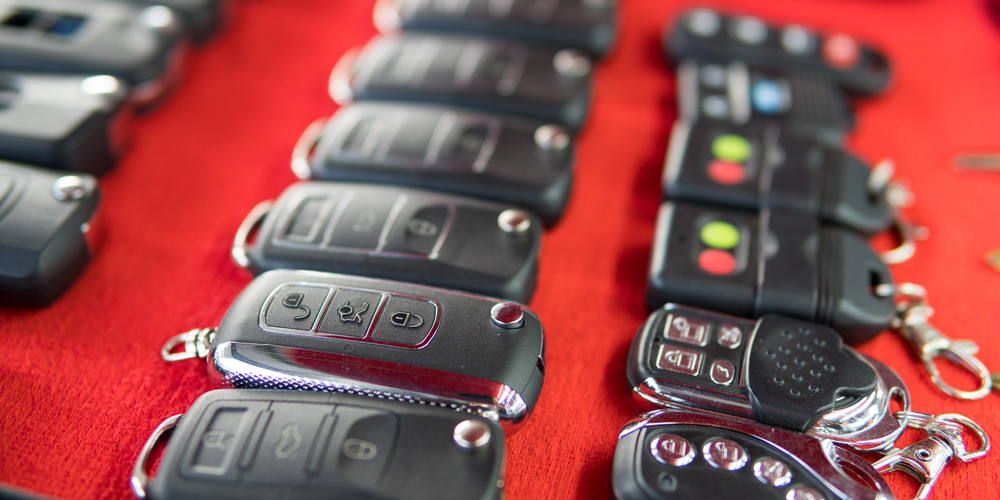
These days, most modern cars have built upon the concept of communication that was introduced by transponder keys. This has led to the keyless entry remote. Keyless entry remotes look like little remote controls, and each button elicits an action from your car. Since these entry remotes are keyless, the key itself works by communicating with your vehicle. This action is similar to the transponder key described above, but in lieu of a key and ignition cylinder, most of these vehicles use push buttons.
Similar to the transponder car key, when the car key fob is not working, there is an issue with the signaling. The most likely cause will be low or dead batteries in the car key fob. But if that doesn’t solve your issue, you will need to troubleshoot more electronic issues. Besides electronic issues, if your key fob is not opening your car doors, you might have issues with your door lock assembly.
Now that we have brushed over some of the differences in car keys, let’s dive right into some of the reasons why your car key might not be working. Keep in mind that if your car key is broken, or if you broke your car key off in the lock, the points below will not help you. Instead, I suggest that you reach out to a locksmith that is skilled in handling broken car key extractions. Let’s begin:
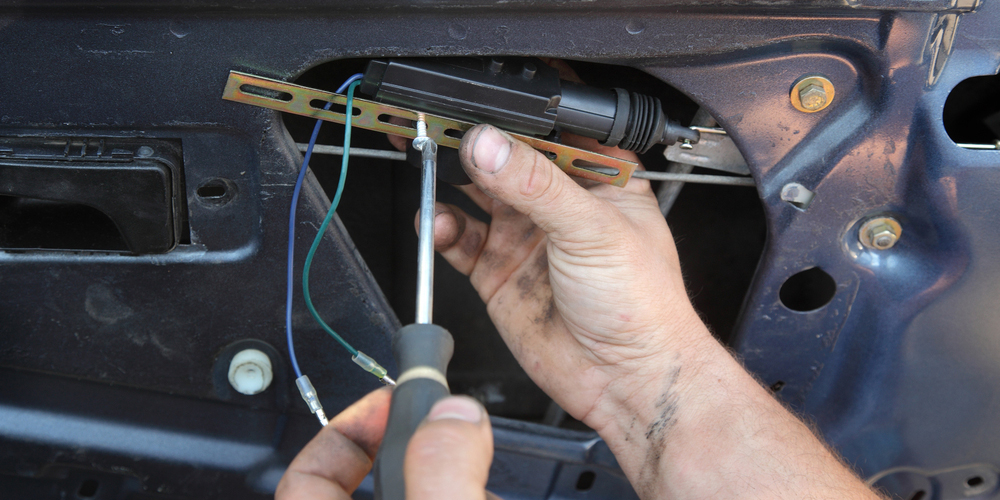
If your car key is not working when you attempt to unlock your car, there is a possibility that the lock itself is damaged. This could be the case even if you are not using the keyways on your car locks (ie. opening car doors with remotes/fobs). Two main parts of a car door lock break: the lock cylinder and the lock assembly.
You can tell which part of the car lock is broken with a bit of trial and error. Insert your key, and see if it turns. If it turns without opening the lock, there is likely something wrong with the lock assembly. If you use a working key fob to open a door, but the key will not open that same door, there is a good chance that the problem lies with the lock cylinder.
Locks can also be blocked by dirt and debris. In extreme temperatures, a car door lock can also freeze. And if you have been in a collision, the lock might be damaged due to the impact. These issues are not the result of normal wear and tear and can affect new car locks just as easily as classic car locks.
Fixes for damaged car door locks
For damaged car door locks, you can reach out to either a professional locksmith or your car dealership for them to lend you assistance. In this case, they will either repair the damaged lock or install new car door locks. The latter might be a more expensive alternative.

One of the main reasons why your car key might not be working is simply because the car key is damaged. When most people think of damaged keys, they tend to conjure up a picture of a broken key that is split into pieces. However, a damaged key is not always visibly broken. The grooves in a key might be worn down. With the improper depth on one or more of these grooves, the car key will no longer match the internal mechanisms of the lock or the ignition.
Keys are physical components, which means that each of these elements is prone to some wear and tear over time. Most people do not pay enough attention to their locks and keys to realize the effect that constant use might have on them. Coupled with a lack of maintenance, it increases the probability of keys being damaged. Once the key is physically damaged, you will need a locksmith to cut a new car key using the key code registered to your vehicle. Simply duplicating an existing car key will result in a copy of your existing issue.
Fixes for damaged car keys
If your physical key is damaged, then you should be looking to get a new key. For those that have traditional keys, a simple car key replacement will do the trick. However, if you have a transponder key, then you will need to have your replacement key programmed to your vehicle.
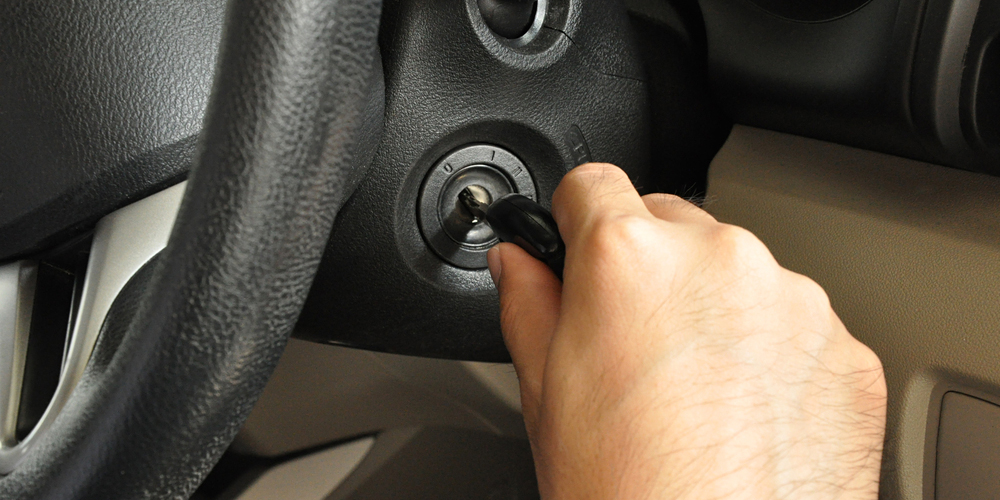
Your key is not only associated with your external car door locks, but it is also the tool that works in conjunction with the ignition. Car keys are not meant to exist alone. This means that for every key that exists, there is a lock or a mechanism that it is meant to function with. If your car key does not work when it is inserted into the ignition, it does not necessarily mean that your car key is faulty or damaged.
Sometimes, this is a symptom of a much larger issue, which might be damage to your car’s ignition. If you have not realized by now, cars are moving mechanical components. (Back in the day this would be called magic, but we can call it science and technology.) The point is, mechanical components are prone to wear and tear, so it is common for things to break down, and your ignition cylinder is no exception.
Fixes for damaged ignition cylinders
Automotive locksmiths are well versed in dealing with faulty ignition cylinders, so if that is the reason why your car key is not working, make sure you reach out to one. They will advise you on whether or not the ignition can be salvaged and repaired, or whether they will have to replace the ignition cylinder entirely.
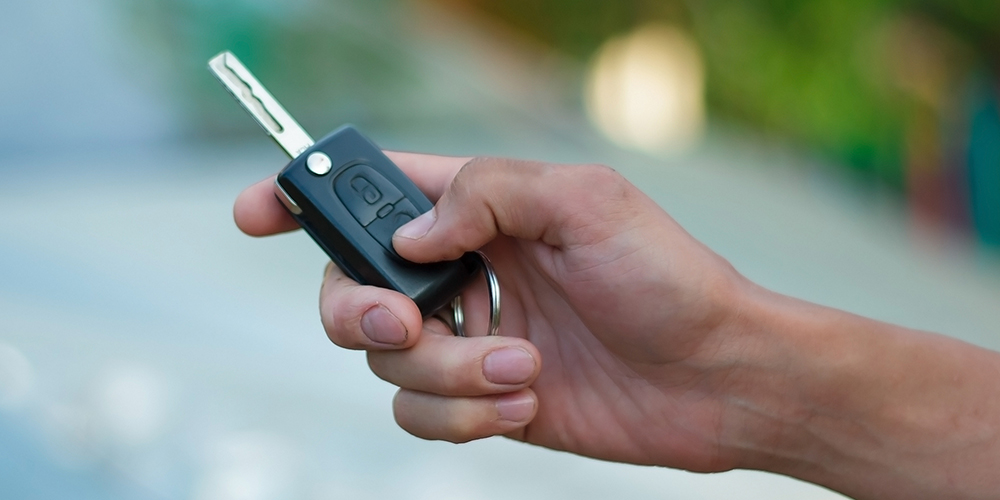
Another reason that your car keys might not be working might be because the batteries in your key fob or keyless entry remote are out of juice. This is a common problem, but one that has a rather easy solution. Batteries run out after a certain period of time, so diagnosing this problem is relatively simple.
If you notice that your vehicle is not responding to the commands and signals being sent from your key fob, it is very likely the batteries are dead. However, you should keep in mind that this is not the only reason your key fob might not be working. When you do realize that your car key is not working because of worn out key fob batteries, the simple solution is to find the right batteries and then replace them. Once this is done, your car key fob should be as good as new.
Fixes for dead key fob batteries
If your key fob batteries are worn out, you should simply replace them. To find the specific battery that your key fob uses, check out the owner’s manual for your vehicle. Some manuals will also give you some basic guidelines to help you change the batteries. If you cannot find your physical copy of the manual, you might be able to find it online via the manufacturer’s website. Key fob and car key remote batteries can be found at local hardware stores or a store that sells automotive parts. Even your local big box store such as Target, Walmart, or Best Buy may have the battery you need.
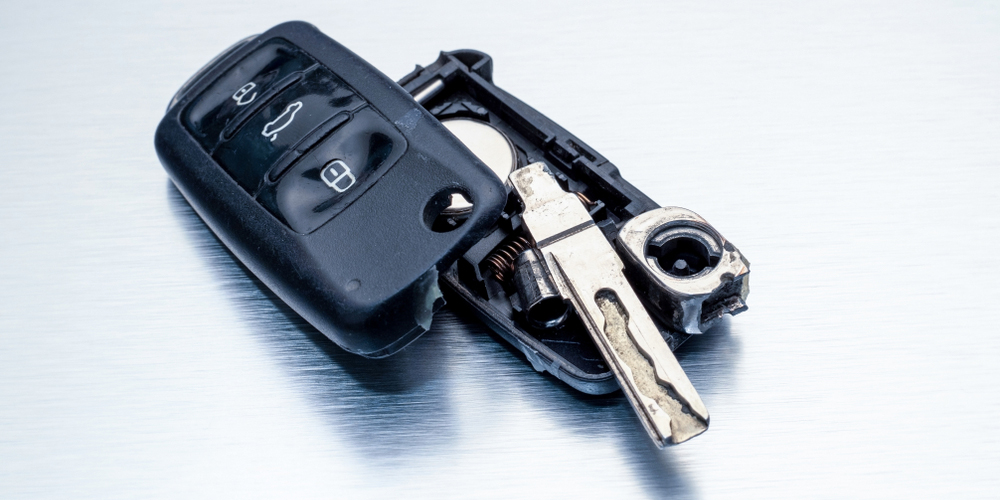
As I mentioned earlier, there are several different types of keys that each have their unique uses and traits. The key fob depends on communication between a transmitter and a receiver, so if one of these components is damaged, it means that your car key will not work the way it was intended. If there is something wrong with the internal electronics of your car, or if there is damage to either the receiver or transmitter, your car key will not work.
Sometimes these elements can be damaged over time and manifest in the form of frayed wires etc. In other cases, damaged internal wiring can be a result of external damage to your key fob or to your car itself. This could arise from something as simple as dropping your car keys and knocking the internal components of your fob out of alignment.
Similar to traditional keys, electronic keys can also wear down. The repeated pressing of buttons can wear down components. If you notice that one button works and not others, then the key fob could be damaged. For example, perhaps the car will unlock with the remote, but not lock. This can be taken as an indication that internal damage has occurred.
Fixes for broken key fobs
Internal damage to the key fob or keyless entry remote is usually best handled by an automotive locksmith or your car dealership. Since they know how to navigate the internal workings of the fob, they will be able to help you get it repaired. If not, they will advise you on the proper key fob replacement.
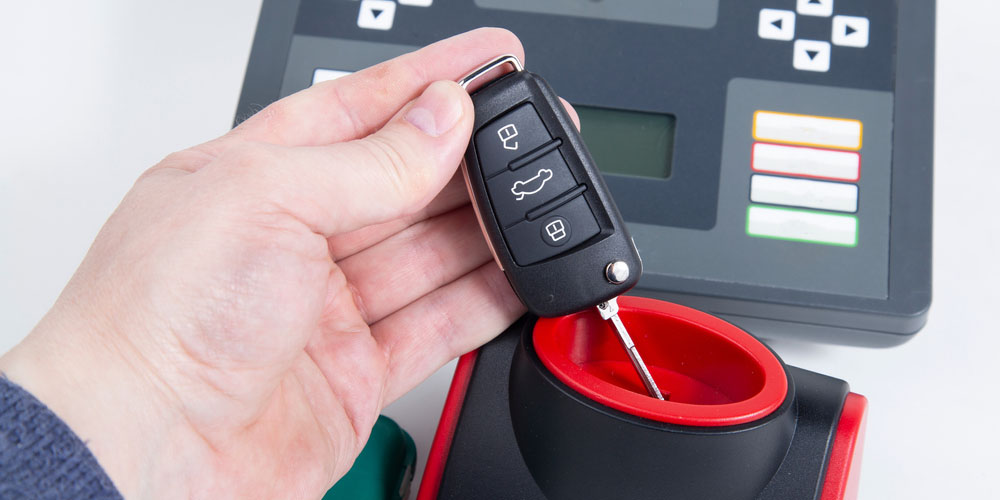
Traditional keys do not have a programming issue, as it is something that only keyless entry remotes and transponder keys have to deal with. If your car key is not working with your vehicle, there is a chance that the key has not yet been programmed to work with your car.
Car key programming issues are a common occurrence among people who replace their car key remotes or acquire duplicate car keys. They often forget that the transponder key and the key fob have to be programmed to communicate with your car. If you do not do this, the most you will be able to do with said key is unlock your car doors and your trunk.
Previously functioning car remotes, transponder keys, etc. might also stop working simultaneously. This is often due to security measures in modern automobiles resetting after the vehicle’s battery is changed. If you have already changed the batteries in your key fob, this could be the issue you are facing.
Fixes for unprogrammed car keys
Transponder key programming can be carried out by a reputable automotive locksmith or by your dealership. It is usually much cheaper to have this handled by a locksmith. The same concept applies to reprogramming aftermarket car keys. It all boils down to programming your vehicle to work with your key.
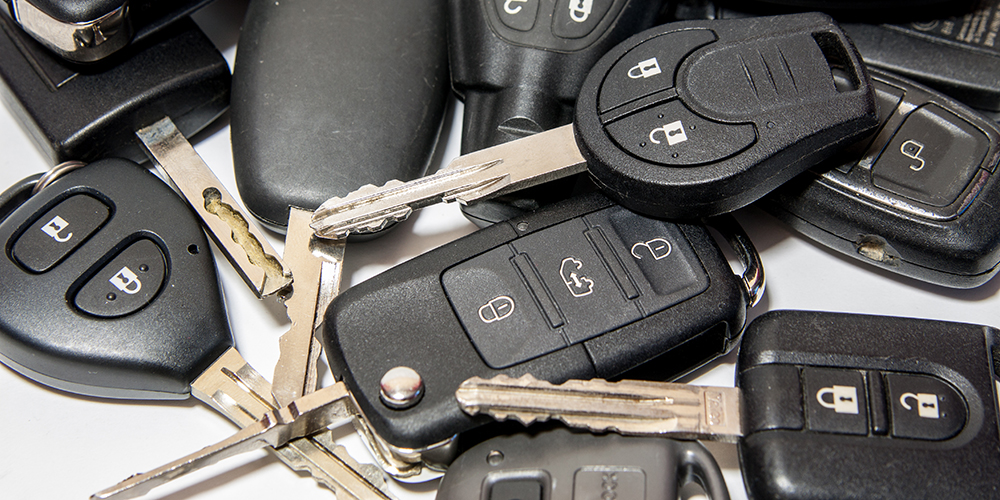
Aftermarket car keys are essentially a much cheaper option that people often explore when they are looking to get replacement keys or spare car keys. You must understand the dangers that aftermarket electronic car keys can pose, but if your car key is not working, that is probably the last thing on your mind.
If you buy an aftermarket car key for your vehicle, and you neglect to reprogram it, you will most likely find that your car key is not working. Aftermarket items are usually the best place to get spare parts and other assorted automotive goods. However, you should keep in mind that most of these parts might not have been designed for your specific vehicle, so some additional work might have to be done. This is the reason why you should always make sure that your aftermarket car key is appropriately programmed and paired to your vehicle.
Fixes for defective aftermarket automotive keys
Go through a reputable locksmith to get the proper key blanks for your make and model. This ensures that the keys can be programmed and cut properly. The cutting and pairing of your car keys can also be performed by the same technician.
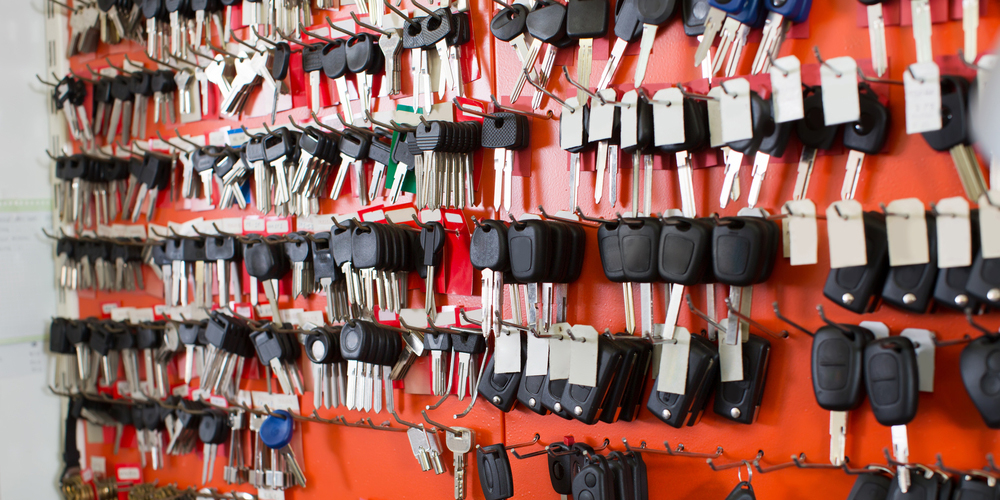
Car key duplicates are popular among drivers and for good reason. It gives you peace of mind knowing that your chances of being stuck in a car lockout are slimmer, simply because you have spare keys that you can utilize. It also gives you the luxury of being able to share your vehicle with members of your immediate family etc. However, many people do not realize that every consecutive car key duplication reduces in fidelity.
Each time that a key gets duplicated, bits of information are lost in the transfer. This means that if you duplicate a duplicate car key, the version you are going to get will be different than the original. A poorly copied key can have issues right off the bat, but a copy of a copy of a copy is even more problematic.
In some scenarios, you will find that your car key is not working, simply because you might be using a duplicate car key that does not function the same as your original key. Obtaining a duplicate car key is a much cheaper option than getting a new key cut to code, but it is not always the best option, nor is it the most secure.
Fixes for malfunctioning spare car keys
A bad spare key may mean you cannot copy your existing key. In that case, contact a locksmith to make a new key from your vehicle code. The new code cut key will be the same as a factory-fresh duplicate. If you have a transponder key or a keyless entry remote, then you should always remember to have the replacement key programmed.
Car keys are an integral part of any drivers daily activities, so whenever your car key is not working, it can be a costly hassle. Taking the time to read through the points listed out above will help you properly diagnose the reason why your car key is not working. Hopefully, this will help you find the solution fairly quickly. Always remember that if you are unsure what to do, you should contact an automotive locksmith rather than tinkering around and potentially damaging your key, lock, or ignition.
Category: Automotive, Car Keys